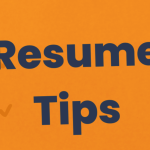When attending a job interview, it’s crucial to remember that the questions you ask are just as important as the answers you provide. An interview is not only an opportunity for the employer to evaluate you for a specific role. It is also a chance for you to determine whether the company aligns with your values and career objectives.
Knowing what questions to ask in an interview and asking relevant, intelligent questions can demonstrate your genuine interest in the role and the business. It also allows you to showcase your industry knowledge and proactive approach to your career. Your questions will signal that you’ve done your homework, showing that you’re serious about understanding the company culture, expectations, and future direction. Such questions highlight your forward-thinking approach to the job and display your willingness to offer more to the company than expected.
Moreover, asking the right questions helps you determine whether the position is the right fit for you. By inquiring about growth opportunities, company values, or success metrics for the role, you can assess whether the position aligns with your personal values and career goals. This blog post will guide you through the essential questions to ask in an interview and how to make the most of this crucial opportunity.
Why Asking Questions in an Interview Matters
Preparing for an interview involves more than just rehearsing answers to common questions. It’s essential to realize that there’s often valuable information about a company that might not be readily available through a casual internet search.
Knowing the important questions to ask and asking those questions about the company shows initiative and genuine interest in the role, giving you an edge over other candidates. So to be prepared, also create a separate list of key questions to ask during an interview.
Questions to ask at an interview should go beyond basic inquiries that can be easily found online. Try to rephrase these fundamental questions in a way that reflects your style and the context of the particular job you’re applying for. This approach demonstrates that you’ve completed your homework and can think critically, adapting your questions to fit the context.
For instance, instead of directly asking, “What is the company culture?” you could ask, “Can you provide an example of how the company’s values are reflected in day-to-day operations?” Questions of this nature indicate a more profound investment in understanding the mission and values of the company. Thoughtfully crafted interview questions will help you gain valuable insights and demonstrate your commitment to contributing meaningfully to their team.
Preparing Your Questions
When preparing your questions, consider framing them in a way that allows you to share your experiences and problem-solving skills. This approach not only enables you to engage more deeply with your interviewers but also helps you highlight your resilience and ability to overcome challenges.
By strategically crafting your questions, you can steer the conversation towards discussing your relevant experiences, thereby demonstrating your ability to tackle difficulties and contribute effectively to the role. This strategy allows you to both gather valuable information and subtly highlight your strengths.
Top 10 Questions To Ask in an Interview
Question 1: Can you describe the company culture and how it influences day-to-day work?
Understanding the company culture helps you determine whether you’ll thrive in the new environment. It encompasses the values, behaviors, and work practices embraced within the organization.
Question 2: What are the biggest challenges the team is currently facing? And how does this role contribute to addressing them?
Identifying challenges and opportunities allows you to highlight how your unique skills can be leveraged to overcome obstacles and contribute effectively to the team’s success.
Question 3: How do you measure success in this role, and what are the key performance indicators?
Understanding the success metrics clarifies expectations and provides insight into how your contributions will be assessed.
Question 4: Can you walk me through a typical day for someone in this position?
This question helps you understand the realistic scope of your everyday responsibilities, allowing you to prepare for what lies ahead.
Question 5: What opportunities exist here for professional growth and development?
Inquiring about growth opportunities demonstrates your ambition and readiness to develop professionally over the long term.

Question 6: Can you tell me more about the team I’ll be working with and the dynamics of collaboration?
This provides valuable information about future teammates and team dynamics, helping you understand how you’ll fit into the existing structure.
Question 7: How does the company support work-life balance?
Understanding the company’s approach to work-life balance is crucial for job satisfaction and long-term success in the role.
Question 8: What are the next steps in this interview process?
This question helps you understand timelines, next steps, and expectations for the remainder of the hiring process.
Question 9: How does this position contribute to the company’s overall goals and mission?
Asking this shows your interest in the bigger picture and how your role fits within the company’s broader objectives.
Question 10: Is there anything about my background or experience that makes you hesitant to move forward with my application?
This question demonstrates your openness to feedback and willingness to address any concerns the interviewer may have.
Make sure to take advantage of our essential job search tips! Visit our blog for expert advice on “Things To Be Mindful About While Applying For Jobs” and give your next application the edge it needs.
Tailoring Questions to Different Stages of the Interview
As you progress through the interview process, it’s important to recognize that not all questions are appropriate for every stage of an interview. Begin with questions related to understanding the role and company. As the conversation progresses, dive into more nuanced points such as team dynamics and culture. Personalize your interview questions to ensure you ask the right type of question for each scenario.
For initial interviews, focus on questions about the role, company culture, and immediate challenges. In later stages, you can delve deeper into questions about long-term career growth, specific projects, and how your skills align with the company’s future goals.
Common Mistakes to Avoid When Asking Questions
When preparing your questions to ask in an interview, be mindful of these common pitfalls:
- Avoid asking obvious questions that are easily found on the company’s website or in its promotional materials.
- Avoid asking about compensation packages or perks during the first interview. These topics are best addressed after receiving an offer.
- Be cautious of asking questions that might unintentionally challenge the interviewer’s authority or expertise.
- Avoid asking too many questions about time off, benefits, or work hours early in the process, as this may give the impression that you’re more interested in perks than the job itself.
Instead, focus on questions that demonstrate your interest in the position and the company’s mission and values.
The Impact of Good Questions on Interview Outcomes
Good questions demonstrate your knowledge of the industry, show enthusiasm, and highlight problem-solving skills. It showcases your preparation, interest, and commitment, making you a more memorable candidate. These questions also ensure you gather valuable information to determine if the job and company are the right fit for you.
Good questions can:
- Demonstrate your knowledge of the industry and company.
- Show your enthusiasm for the role and organization.
- Highlight your problem-solving skills and strategic thinking.
- Help you stand out from other candidates.
- Provide you with crucial information for making an informed decision about the job.
Ready to advance your career? Explore Jobs Dynamics for resources and job opportunities aligned with your skills and career aspirations.

Conclusion: Mastering the Art of Asking Questions in Interviews
Asking meaningful questions during an interview is a critical part of the process. It not only sets you apart as a candidate but also provides you with valuable information to make informed choices about a prospective new job. By preparing and asking key questions, you’ll have a more productive and successful interview experience.
Remember, an interview is a two-way street. While the employer assesses your fit for the role, you’re also evaluating whether the company and position align with your career goals and values. By asking thoughtful, strategic questions, you demonstrate your genuine interest and commitment to finding the right fit.
As you prepare for your next interview, dedicate time to crafting personalized, insightful questions that reflect your research and enthusiasm for the role. This approach will not only impress your interviewers but also provide you with the information you need to make an informed decision about your career path.
Lastly, don’t forget to familiarize yourself with common interview questions to ask, as well as those you might be asked. This comprehensive preparation will ensure you’re ready to make the most of every interview opportunity and take the next step in your professional journey.
Mastering the art of asking the right questions can be the key to securing your next job and advancing your career.
FAQs:
What types of questions should I ask in an interview?
Asking thoughtful and relevant questions about company culture, growth opportunities, and role expectations can help you understand if the job is a good fit for you and showcase your genuine interest in the position.
Why is it important to ask questions during an interview?
Asking questions demonstrates your initiative, critical thinking, and commitment to the role. It also provides you with valuable insights into the company, helping you make an informed decision about whether to accept an offer.
Can I ask about salary and benefits during the first interview?
It’s generally advisable to avoid discussing compensation packages during the initial interview. Focus on understanding the role and company first; these topics can be addressed after receiving an offer.
How can I tailor my questions to different stages of the interview?
In the early stages, focus on understanding the role and company. As you progress through the interview process, ask more detailed questions about team dynamics, specific projects, and long-term career opportunities.
What should I avoid when asking questions in an interview?
Avoid asking obvious questions easily found online, questions about compensation too early in the process, or inquiries that might challenge the interviewer’s authority. Focus on questions that show your interest in the company’s mission and values.
How can asking the right questions impact my interview outcome?
Thoughtful questions can set you apart from other candidates by demonstrating your preparation, enthusiasm, and strategic thinking, ultimately making you a more memorable and desirable candidate.
What are some examples of good questions to ask in an interview?
Good questions include asking about company culture, key challenges the team faces, success metrics for the role, and opportunities for professional growth. These questions help you gather valuable information while showcasing your proactive approach.
Is it okay to ask for feedback during an interview?
Yes, asking if there are any concerns about your background or experience is a great way to show openness to feedback and willingness to address any potential issues, signaling your proactive approach to improvement.
How many questions should I ask in an interview?
Aim to ask around 3-5 well-crafted questions that demonstrate your interest in the role and company. Ensure they are relevant and insightful without overwhelming the interviewer.
How can I ensure I have enough questions prepared for the interview?
If you run out of questions, it’s fine to express your satisfaction with the information provided so far and ask if there’s anything else you should know to prepare for the next steps.


